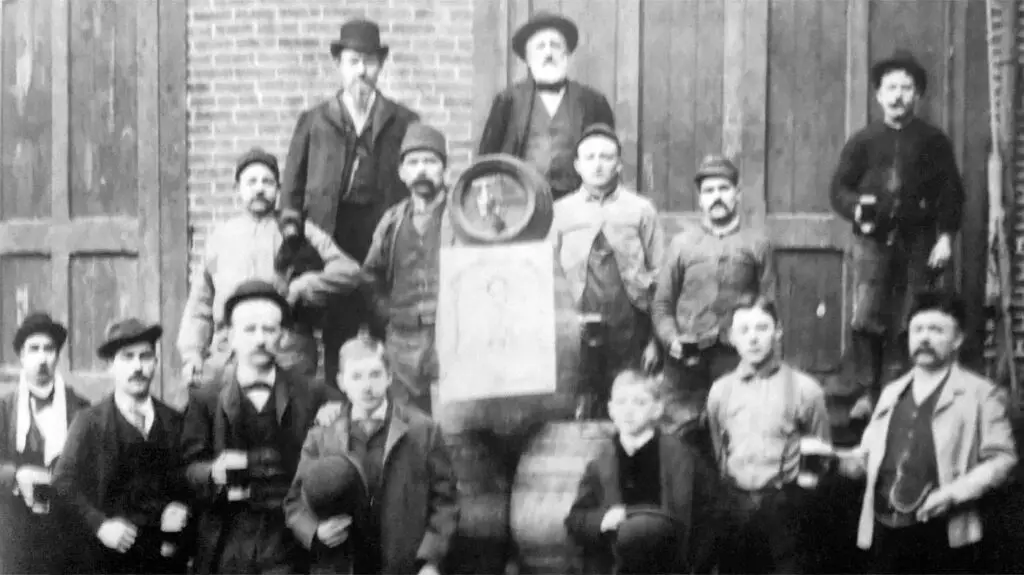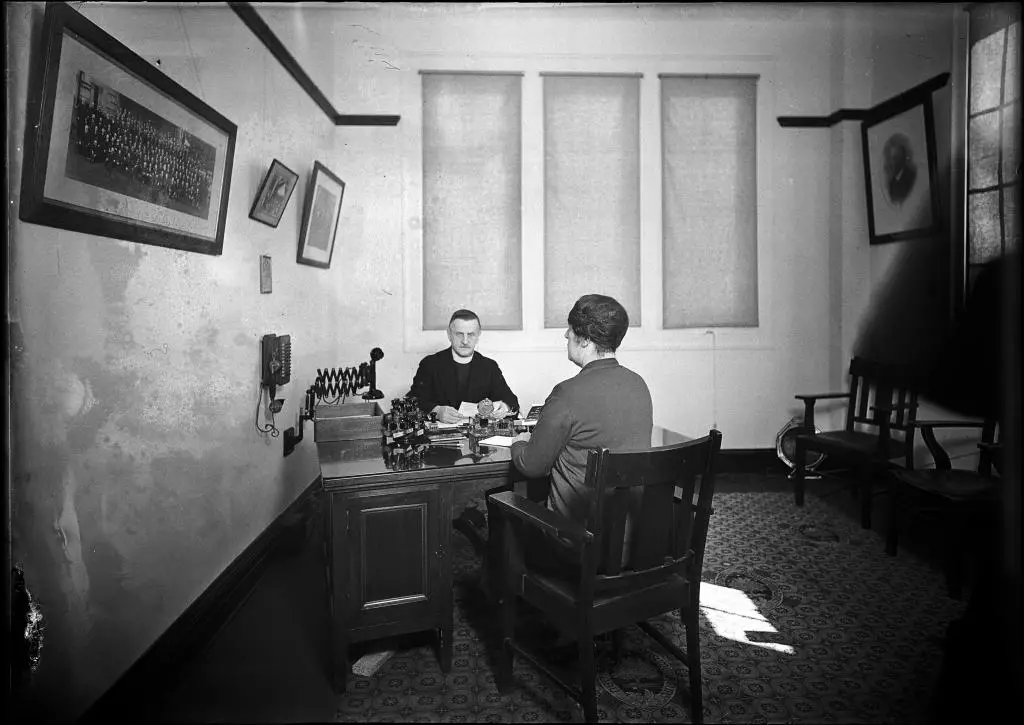In every industry, sloppiness is often more costly than laziness. Managers don’t want to waste time fixing their employees’ mistakes- they want employees with the attention to detail to avoid mistakes entirely. But in a stack of resumes that all list “attention to detail,” how do you set yourself apart?
Putting “attention to detail” on your resume does two things: First and foremost, it shows potential employers that you are thorough in your work, and don’t tolerate mistakes. Secondly, it gives you a chance to prove that skill- both right there on the resume, and in the interview.
But if you don’t do it right, your resume WILL be tossed in the trash. “Attention to detail” skills are listed on practically every resume, so without the right strategy, your resume is no better than anyone else’s. If you want to get hired for your attention to detail, you’re going to need a detail oriented resume. By following our helpful strategies, you’ll write an incredible resume, and your attention to detail will win you any job you apply for.
First, Consider Your Strategy
If you’re here, you probably want to write a perfect resume, and there are a couple resume formats you could use. A key question: should you write to “stand out” or “fit in”? The answer: it depends…
A “stand out” resume is where you focus on a couple of key points and aggressively build the entire resume around those messages, ditching everything else. This works really well if you know the hiring manager is a). looking for an expert and b). you can claim to be that person. For example, respond to a senior pricing role with a resume featuring deep pricing experience, pricing leadership roles, analytics, and pricing IT systems. That year managing logistics? Don’t mention it. Send that resume for pricing, and you’re getting called back. It will be tossed in the trash for anything else. To Stand Out, share unique experiences, big wins, and comprehensive expertise.
The “fit in” resume is softer, covering the broader set of your soft and hard skills. Individual areas are addressed generically, describing roles vs. narrow accomplishments. Sure, I do pricing – and six other things. This works best if you know someone on the inside – or have a networking appointment – and want to have the flexibility to change your approach if other opportunities open up. You are relying on your inside relationship to get you in the door.
Other concepts here to ponder as we go deeper into how to sell “attention to detail”. Positioning. Branding. You’re selling a product here – You!. Think about what messages you want to lead with. And how aggressively you want to deliver them on your job application.
Building A Story About Attention To Detail
To really sell attention to detail on a resume, you need to link your claims back to something impressive:
- Did your attention to detail improve profits?
- Does Your Job or Title Naturally Suggest It?
- Did you receive an award or high praise?
- Were you entrusted with critical tasks?
- Were you promoted for this reason?
The trick is to show not tell potential employers about your attention to detail skills – and link them back to your broader branding and positioning as a candidate. That way your claims become part of a broader story about why you are an ideal candidate for this position.
Frequently Asked Questions
What Do They Want and Why Does It Matter?
Attention to detail is a common requirement for jobs where the consequences of a mistake are particularly drastic or difficult to fix. For example, pharmacists and nurses often need to be very diligent in ensuring the details of a medication are correct, since the wrong medicine at the wrong time could injure or kill a patient. In an office or retail environment, this skill may be required for people who manage money, important documents, and sensitive relationships with important customers and public officials. A personal assistant who doesn’t spell a customer’s name or write down a message correctly might offend an important customer. A billing clerk entering the invoice as a $5000 charge rather than a $500 charge could cause countless hours of drama when the customer realizes their bill is wrong. A lawyer missing a single word (or comma!) in a hundred page contract can cost the company millions of dollars! If getting the details of a task wrong would cost the company money or embarrassment, they will probably ask for strong attention to detail.
What Does Attention To Detail Look Like In Me?
The recruiter and HR manager are probably referring back to a job competency sheet. It will list off characteristics such as:
- Provides accurate, consistent numbers
- Provides information in a usable form and on a timely basis
- Maintains lists and schedules to ensure details are not overlooked
- Able to manage tasks in compliance with company policies and operating procedures
- Writes down important details so the details are not lost or forgotten
- Able to notice patterns in data and turn them into useful insights
- Work requires little or no checking
We can boil all this down to a couple of key ideas. First, you are capable of carefully reviewing your work to find mistakes. Furthermore, you can spot when something is out of place and figure out why it is important. Above all, you are trustworthy: you can be relied upon to follow orders and complete your work within the expected time.
Checking Your Work
This is a common requirement for many marketing positions. One of my first jobs involved working on direct mail campaigns, essentially Stone Age telemarketing where we mailed a letter with a credit card offer to millions of people. Each letter had several phone numbers, the terms of the offer, legal terms and conditions, and a website address. We had to check every letter template before they were mailed to ensure that the necessary language was included and the contact information worked. Being successful required two things: organizing the list of things you had to check into a process and being disciplined enough to consistently follow that process. It can be surprisingly hard to do this well!
Process Management
The second idea, organizing policies and processes, gets into how can you ensure you are delivering quality work on an ongoing basis. This set of organizational skills is particularly important if you are going to be regularly managing large and complicated projects. It also is an important requirement for managers, since you must think about how to check your team’s work (without redoing every task yourself). Experience is helpful here, but any sort of management duties are good to showcase.
Insightfulness
Spotting subtle insights in data is very common in fraud investigation and financial analysis. When I worked as a fraud investigator, most of my colleagues had very high attention to detail. Many fraud cases start when someone notices a very small thing that is out of place, which leads the investigator to a larger problem. Along the same lines, high attention to detail is often required of financial analysts and business consultants who are asked to figure out the truth behind a report or rumor about a business. And – this will be a surprise – the best sales representatives often have outstanding attention to detail when it comes to noticing customer behavior.
Trust
You mean what you say and are capable of following through on your commitments. In simple terms, your future boss wants to know they can trust you to complete your work accurately and notice small details when they are important. People with high attention to detail can be trusted to work alone and on sensitive tasks.
More Resume Skills You Might Like:
- This Just In: There is NO MORE Talent
- Recruiters Hate This One Simple Trick On Your Resume
- How To Become A Social Media Influencer FAST
How Do I Demonstrate Attention To Detail On A Resume?
This is a suprisingly tricky skill to describe on a resume. Merely writing “attention to detail” or “detail oriented” at the top of your resume doesn’t add a lot of credibility. Honestly, it probably hurts you – everyone does this and thus, it doesn’t really mean anything anymore. Focus on showing rather than telling future bosses you have good attention to detail. You can do this a couple of ways:
- Talk about your experience being trusted with highly detailed tasks in the past. In some cases, you may need to shamelessly cater to stereotypes about your role or education. Everyone thinks accountants have good attention to detail. When you tell someone you’re a fraud investigator, they immediately think Sherlock Holmes. Talk about being trusted to keep official records of an event or organize a complicated project. I’d trust someone who organized a large charity event was pretty detail oriented. Being asked to handle money, as the treasurer for a group or the closer/keyholder for a business, is another big trust signal in retail jobs. Human resources administrators can point to being asked to manage critical documentation (payroll, legal filings) which your company would be sued for if you made a critical mistake. The key words here are being trusted with highly sensitive and highly detailed tasks by your past managers.
- Statistics are great if you can find them. Look for things like error rates or acceptance rates, especially for administrative processes. Because you had all your paperwork in order, perhaps bills got paid faster and with fewer deductions by the customer. Or talk about the impact of your being organized – for example, cleaning up a bookkeeping mess and finding a large sum of money.
- Awards, other recognition, and progressive responsibilities are another great way to communicate your talents to a future employer. The nice thing about awards is most of them are generic enough you can spin them however you want on a resume, to showcase the skills you want to promote for that job. Similarly, if you were so organized on a small project they asked you take over a bunch of other things, that’s a great story to tell. Another good mark of trust from your management: being asked to train others on a particular activity or being placed in charge of quality inspection for the team. These are the kind of things that can reassure a hiring manager.
- Proofread Your Resume. It should go without saying that a manager looking for close attention to detail will be very sensitive to resume errors. Use spell check liberally – or even use a tool like Grammarly to check for other errors.
Resume Bullets That Show Attention To Detail
Again, think “show” vs. “tell”. When everyone writes “detail oriented” at the top of their resume, the words lose their impact. But if you hand the hiring manager a resume that shows how you have repeatedly been trusted with complicated and sensitive tasks, they are likely to sit up and pay attention to you as a candidate. Here are some other good things to talk about to showcase your attention to detail, which you can use as resume bullets:

- Managing Sensitive Paperwork: Were you responsible for handling your company’s application for a quality or industry certification? Were you responsible for handling an audit? Keeping careful records? That can make a great resume bullet, talking about how you organized your company’s documentation so they passed the audit, got the certification, or were recognized for having their act together due to your great documentation.
- Quality Improvements: Did you make changes in work processes or procedures which made it easier to detect errors? What about preventing errors in the first place? This is a great bullet for your resume – if you can show you improved a quality metric, mention it…
- Signs of High Trust: If you performed a highly trusted role, describe your job duties and who your boss is. For example: “Coordinated SEC and IRS audit preparations for the CFO and senior executives.” That would indicate someone had placed a high amount of trust in the quality of your work. If someone would have gone to jail for your mistakes (or written a large check with lots of lawyers running around), that sends a powerful message about how much your bosses trust your attention to detail.
- Managing Complicated Projects: Did you have to manage a complicated project with a lot of moving parts? Describe it!
Not sure how to fit these into your resume? Take a look at these examples:
- Received consistent top-tier rating for call quality and documentation accuracy as a customer service representative.
- Handled all aspects of preparing the weekly payroll and expense reporting for a 400 person facility; achieved 100% on-time payment and was recognized for maintaining detailed records during the annual audit.
- Responsible for managing all details of the Senator’s travel schedule, coordinating their appearance at up to a dozen events per day. Subsequently asked to assume management of all public appearances, including working with media representatives and the security team.
Note the key points here of a good “proof of skill” bullet for your resume. First, talk about the complexity of the assignment. Next, offer some indication that you satisfied your objectives in a timely or impactful fashion. Statistics are great, particularly if you can tie them back to measurements that direct show how you helped the business perform better. Finally, offer “social proof” that your bosses were happy with your work by referencing awards, positive feedback, and increases in your responsibilities.
Preparing for The Interview
The best way to prepare for an interview for a job where attention to detail is important is to think about several stories you can tell the interviewer which feature this skill. You have more flexibility in the face-to-face environment of the interview to describe how you were able to apply your talents to help past employers succeed. They may not ask you detail-oriented interview questions, but be ready to showcase examples of where employers trusted you with sensitive tasks, and the experience you gained. That is a very convincing indicator of being trusted. Think of it as an opportunity to expand on your resume– take the basic things you listed and tell the interviewer how, when, and why.
Improving Your Attention To Detail
Told that you need to improve your attention to detail? Try these tips to see if you can sharpen your skills.
- Proofread your work. The human eye jumps to spelling and grammatical errors. Like it or not, this is the first impression your work leaves on the reader and can be very difficult to overcome. Invest the time to proofread your documents and get them correct. Finish your memos and reports in advance and give yourself time to revise and edit them several times. Proofreading is an important skill because it proves that if you care about the quality of your work. In the mind of the reader, if you invest the time to get a single document correct, you’ll likely do the same for any larger, more important projects they entrust to you.
- Make lists. If you have a number of things you need to accomplish in a particular time frame, make a list, set goals, and check off each item as it’s completed. If you can’t finish everything on the list, start a new list for the next day and include those leftover tasks.
- Practice Active Listening: Communication skills are about more than just talking- take the time to understand other people’s emotions and intentions. Listening is critical if your job is investigation or negotiations. Relax, sit back, and let the other party speak instead of rushing to talk. You will get priceless insights into their position and goals.
- Take Notes: Simple yet powerful, especially when combined with active listening. First, the mere act of having a notepad and writing down important points shows respect to the other party. Taking notes indicates you are taking them seriously. The act of writing things down also helps you remember the meeting and the flow of the conversation (beyond the notes themselves). Finally, the act of note taking forces you to listen rather than speak – and can slow your brain down enough that you spot the larger patterns.
- Create a detailed work plan for your daily jobs and key tasks. This could take the form of a process map or checklist. Use this as a guide if you find yourself getting distracted or confused.
- Reduce distractions. Scientists have learned that being exposed ringing phones and text messages are as bad as being drunk when it comes to work quality and attention to detail. This is particularly true if you’re doing detailed technical or financial work. It often takes a little while to get back in the flow of things after being interrupted. Don’t be afraid to close your door or set specific office hours if you have a problem with unscheduled visitors. Use headphones if you’ve got a lot of noisy distractions around you. Worst case, set aside some time each day in a quiet place where you can take some time to plan your day and make a checklist of what you need to accomplish.
- Manage Your Workload. Be aware of how much work you are taking on and do what you can to prevent being overloaded. Time management is key- while a little pressure can be good, be wary of putting yourself in situations where you don’t have time to adequately check your work or update your notes.
Paying close attention to details is an extremely valuable skill, and you will have no trouble finding a job that’s looking for it. And though every resume in the known universe lists “Attention To Detail,” you now have the tools and the knowledge to stand out, and give recruiters an amazing resume with the facts, and details, to back it up.
More Resume Skills You Might Like:


